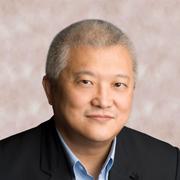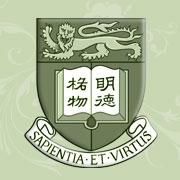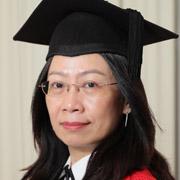
 |
莊友堅基金教授席 (發展及教育心理學) 作為父親的我,一直在思考成長、發展、學習等課題。我希望此領域的研究能夠為人類社會帶來積極改變。
莊友堅先生 |
 |
待聘 |

何淑嫻2018年就職
Developmental dyslexia is a disorder that involves persistent and severe difficulty in learning to read or spell words, and affects approximately 5-15 per cent of the global population. Many children with dyslexia may be intelligent and hardworking, but they have trouble connecting the letters they see to the sounds those letters and words make. Being dyslexic in the Chinese language is not the same as having the disorder in the West where children learn alphabetic languages. In a culture that emphasises academic achievement, there is an old belief that dyslexia does not happen in the learning of Chinese. Because of this, dyslexic children in Chinese societies are often mislabelled as lazy or stupid. Professor Connie Ho Suk-Han joined the Department of Psychology at The University of Hong Kong (HKU) in 2000. She holds the Eugene Chuang Professorship in Developmental and Educational Psychology. Her research focuses mainly on the cognitive and genetic aspects of literacy learning and developmental dyslexia in Chinese people. Internationally, research in the field has been dominated by studies examining the characteristics of reading alphabetic languages, and much less on understanding how children learn to read Chinese and why some fail to read well. Based on her research findings, Professor Ho's team has developed several sets of standardised assessment instruments that are used by professional psychologists and teachers in Hong Kong to identify students with dyslexia from pre-school to adult level. As the first and only standardised Chinese cognitive-linguistic assessment instruments for learning difficulties worldwide, they are major reference materials on the topic globally, and have been requested by researchers and practitioners from China, Europe, Asia, and elsewhere. With funding from the Hong Kong Jockey Club Charities Trust, Professor Ho's team has developed the first evidence-based Chinese language tiered intervention model for literacy instruction. Given its effectiveness, the Hong Kong Education Bureau implemented the model, curriculum, and computerised assessment in 200 primary schools from 2011 to 2016 with the aim of making it a routine practice for Chinese literacy learning for all local primary schools. Professor Ho's research has produced valuable new knowledge in the field of developmental and educational psychology. The evidence-based practices, in both the identification of and intervention in learning difficulties, exemplify how good science can be applied to meet real-world challenges. To recognise her contributions to knowledge enhancement, Professor Ho was given the Faculty Knowledge Exchange Award in 2011. In 2013, she contributed to a University Grants Committee (UGC) documentary for the public on reading and writing difficulties, presenting her findings on dyslexia and her intervention model and how they can help Hong Kong children learn to read. In 2015 she was awarded the Medal of Honour by the HKSAR Government for her contributions to dyslexia research and services. Professor Ho is an active player in local and international professional services. She is a Chartered Psychologist of the British Psychological Society, a Fellow of the Hong Kong Psychological Society, a Voting Member of the Society for the Scientific Study of Reading, and the Public Relations Officer of the Association for Reading and Writing in Asia. She has produced over 150 academic publications on her key research topics, and is an Editorial Board Member of the international journal Reading and Writing, and Associate Editor of the Asian-Pacific Journal of Developmental Differences. Professor Ho has been appointed as a Council Member of the Suen Mei Speech and Hearing Centre, a centre for hearing impaired children, and the China Dyslexia Foundation, an organisation for children with dyslexia in Mainland China. She is also a consultant for the school-based educational psychology services of some local organisations, and is a member of various government task groups. |
